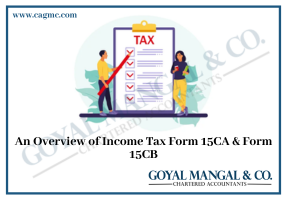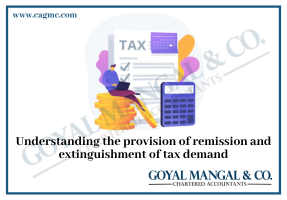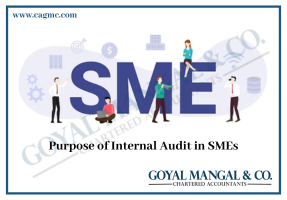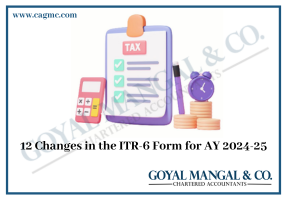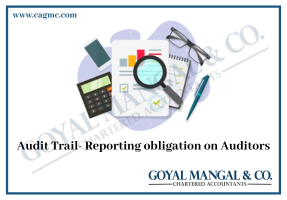
On 3rd October 2022, the Federal Tax Authority issued Federal Decree Law No. 47 of 2022 which shall be effective from 15 days from the issue of date of decree in continuation of UAE Ministry of Finance announcement of Federal Corporate Tax (CT) in UAE w.e.f. 1 June 2023. Such decree consists of Article 1 to Article 70 explaining the provisions of UAE Corporate Tax (UAE CT).
| Table Of Contents |
Introduction
Federal Government under the aegis of Ministry of Finance through Minister of Finance has indicated that the purpose of introducing such landscape changes in UAE Tax Ecosystem is visioned with strategic planning, objectives, transparent taxation system, promoting and stimulating economic growth with expansion in green field and Brown field projects through Overseas Direct Investments (ODI) and/or Foreign Direct Investments (FDI), and to minimise revenue leakages by making disclosures and reporting applicable to Business Entities affected by such ecosystem, ushering in positive economically sustainable growth with minimum and reasonable corporate tax rate of 9% as compared to anywhere in the globe.
Reasons for UAE introducing CT
A competitive CT regime based on international best practices is expected to cement the UAE’s position as a leading global hub for business and investment and accelerate the UAE’s development and transformation to achieve its strategic objectives.
Introducing a CT regime also reaffirms the UAE’s commitment to meeting international standards for tax transparency and preventing harmful tax practices.
UAE introduces Corporate Tax Law
UAE Corporate Tax is a direct Tax on the income/profit of the corporation. This is a step by UAE toward Tax transparency and global minimum tax policy. UAE Corporate Decree-law will be in effect from an entity from Financial Year commencing on or after 1st June 2023. For example, this law will be applicable from 1st June 2023 but if an entity has an accounting cycle of 1st Jan – 31st Dec then for that entity UAE Corporate Tax will be applicable from 1st Jan 2024.
UAE Corporate Tax (UAE CT) will become effective for financial years starting on or after 1 June 2023. It shall apply to:
- Individuals who are engaged in a business or business activity in UAE through an unincorporated partnership or sole proprietorship;
- Juridical persons incorporated in the UAE;
- Juridical persons effectively managed and controlled in the UAE; and
- Foreign juridical persons that have a permanent establishment in the UAE.
Applicability of UAE Corporate Tax
- UAE CT will apply to UAE companies and other legal persons incorporated in the UAE as well as to a foreign legal entity having a Permanent Establishment (PE) in UAE.
- UAE CT will not apply to an individual unless he is engaged in business or commercial activity in the UAE, which requires him to obtain a commercial license or equivalent permit from the relevant competent Authority in the UAE.
- The following persons are exempted from UAE CT (Articles- 4-10):
- Federal and Emirate Governments and their authorities and other public institutions
- Wholly-owned, Government-owned UAE companies that carry out the sovereign or mandated activity and that are listed in a cabinet decision
- Businesses engaged in the extraction and exploitation of UAE natural resources that are subject to Emirate level taxation; Charities and other public benefit organizations that are listed in a Cabinet Decision
- Public and regulated private social security and retirement pension funds; Investment funds, subject to meeting certain conditions.
Basis of Taxation
- Article 12 & 13 UAE CT would be based on the residential status of the person in UAE.
- The following persons shall be considered as Residents of UAE for UAE CT:
- A legal person that is incorporated in UAE
- Any natural person who is engaged in a business or commercial activity in the UAE, either in their own name or through an unincorporated partnership
- A foreign company, if it’s effectively managed and controlled from the UAE.
- Tax residents would be liable for UAE CT on its worldwide income. Any income earned from a foreign jurisdiction on which tax is paid in such jurisdiction will be allowed as a credit against UAE CT.
- Non-residents will be subject to UAE CT on taxable income from their PE in UAE and income which is sourced in the UAE.
Free Zones – Article 18
- While companies and branches registered in Free Zones will be within the scope of UAE CT and subject to tax return filing requirements, they would be liable for a 0% CT rate if they demonstrate adequate substance and comply with relevant regulatory requirements.
- Free Zone person that has a branch in mainland UAE will be taxed at a regular CT rate on its mainland source income while continuing to benefit from the 0% CT rate on its other income earned as a Free Zone person.
- Where Free Zone Person does not have a Branch in mainland UAE and earns income from the mainland, then a 0% CT rate would apply only to ‘passive’ income (like interest, royalties, dividend, capital gains on shares of mainland UAE company, etc.).
- 0% CT will also apply to the transaction between Free Zone Person and their group company in mainland UAE. However, payments made to Free Zone Person by a mainland group company shall not be tax-deductible.
- A Free Zone Person earning any income other than the above-mentioned incomes from the mainland would lose the benefit and would be liable to be taxed at CT rates on the entire income.
- Free Zone person would have an irrevocable right to opt for a regular CT regime
Conclusion
UAE Corporate tax law will be applicable to all Emirates of UAE. There are few exempt incomes (natural resource extractive/non-extractive business) under Federal law but the local Emirate that has the jurisdiction over the company may tax it. Here the taxes paid on the Emirate level will not be able to be credited against or otherwise reduce the amount of Federal CT payable.
As this is a corporate tax on the entity it is possible that MNE/MNC will be taxable and therefore international treaty to which UAE is a party should also be considered while computing the tax liability. In case of a conflict between the UAE Corporate Tax Law and an international agreement with respect to the right to tax a certain item of income, the relevant international agreement may limit the application of UAE CT.

